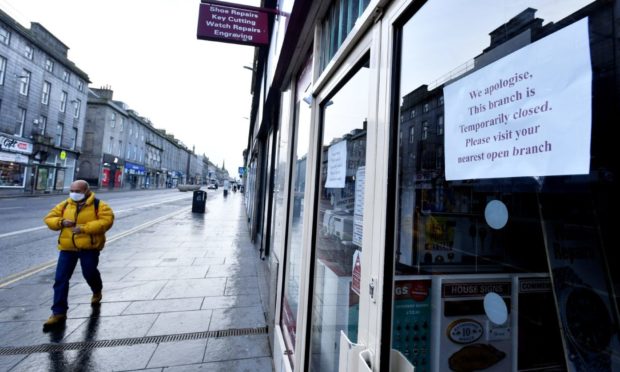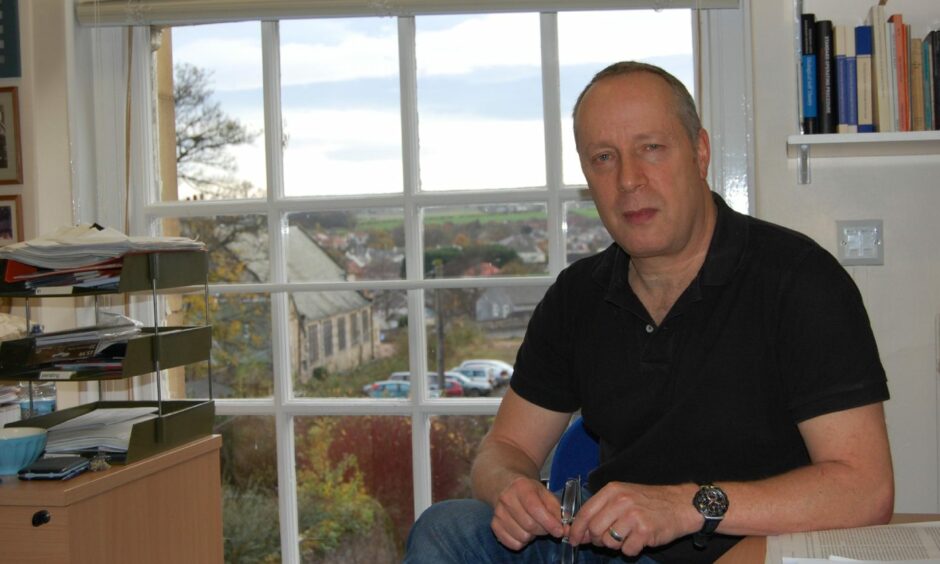Health bosses have called for an emergency backup plan in case existing contingency measures fail to turn the tide on a surge of new Covid infections – but could we really see a return to lockdown?
The NHS Confederation – an organisation that represents NHS trusts – has urged the UK Government to immediately reimpose face masks and work from home guidance in England, and to come up with a “Plan C” in case even that is insufficient.
Scotland already has those measures in place but across the UK cases have soared to their highest level for three months, rising above 40,000 for each of last seven days, with 2,768 cases being recorded in Scotland alone on Wednesday.
On Tuesday, 223 people had died within 28 days of testing positive for Covid-19 across the UK – the highest figure for daily reported deaths since March 9.
Matthew Taylor, chief executive of NHS Confederation, warned the health service is already “right on the edge” and it would require “an incredible amount of luck for us not to find ourselves in the midst of a profound crisis over the next three months”.
He said it is time for the Government to enact “without delay” Plan B of its strategy – which could include imposing masks, home working and vaccine passports – because without pre-emptive action, the country “risks stumbling into a winter crisis”.
What does Plan C mean?
Mr Taylor said health leaders also need to understand what a Plan C would entail if these measures are insufficient, urging the Government not to wait for “Covid infections to rocket and for NHS pressures to be sky high before the panic alarm is sounded”.
He added that if the Government “fails to get a grip” on rising coronavirus cases, the nation’s recovery from the pandemic could be “put at risk”.
Business Secretary Kwasi Kwarteng rejected the suggestion the UK could return to any form of lockdown, and he insisted people should “absolutely” still book Christmas parties in the coming weeks.
Mr Kwarteng said he does not want further lockdowns to jeopardise the “hard-won gains” of reopening the economy, echoing a Downing Street spokesman, who said there are no plans to activate a Plan B for winter.
He told the BBC: “What we have to remember in all this is that the vaccination rollout has allowed us to get some kind of normality
“We’ve had our lockdowns, we’ve managed to reopen the economy successfully, we’ve managed to get back to normal life and those gains were very hard won.
“And I don’t want to reverse back to a situation where we have lockdowns. I don’t think it’s necessary. We think the course that we’re plotting is the right one.”
A sleight of hand
Speaking later to Sky News, Mr Kwarteng admitted the Government is “concerned” about the rising number of daily deaths from Covid but added it is “something we’re going to have to live with and I think we are managing the situation”.
Professor Stephen Reicher, an expert in social psychology at St Andrews University who has advised both the Scottish and UK Governments during the pandemic, believes lockdown or tougher restrictions can be avoid entirely.
He said measures such as supporting people who need to self-isolate, allowing those who can to work from home and providing decent sick pay would mean controlling the pandemic “without needing further restrictions, let alone lockdowns”.
“So the Government’s refusal to act on the grounds that action means lockdowns is a dishonest sleight of hand, a misrepresentation of what is being suggested, an attempt to invoke something monstrous where no monsters exist,” he added.
Downing Street has credited the vaccination programme for hospital admissions and deaths being “far lower than we saw in previous peaks”.
However Professor Neil Ferguson, a leading member of the Scientific Advisory Group for Emergencies (Sage), said people should be aware that “we have currently higher levels of infection in the community than we’ve almost ever had during the pandemic”.
The weekly rate of new reported cases of Covid-19 in the UK is one of the highest in the world, having jumped from 367 cases per 100,000 people at the start of October to its current level of 463 per 100,000.
By contrast, rates have dropped to low levels in neighbouring countries such as Spain, with 24 per 100,000, France at 48 and Germany at 80.
Monitoring carefully
Prof Ferguson said that while a Plan B might be needed “which involves some rolling back of measures”, he is doubtful the country would “ever get close to the lockdown we were in in January of this year”.
The prime minister’s official spokesman said there are “a number of different factors that would play into” a decision to bring in contingency measures set out in the autumn/winter strategy, including a “significant risk” of the NHS being overwhelmed.
He added that the country was “at an order of magnitude lower (in terms of level of hospital admissions and deaths)” to earlier in the pandemic and insisted the Government is not being “complacent” but rather “monitoring this very carefully”.


